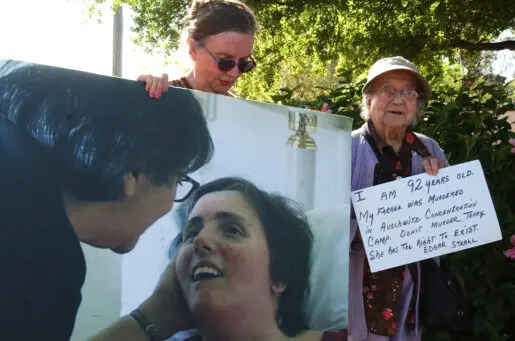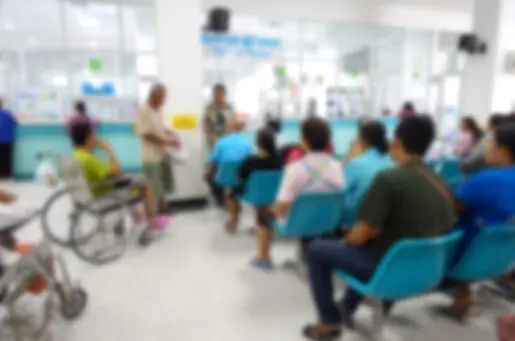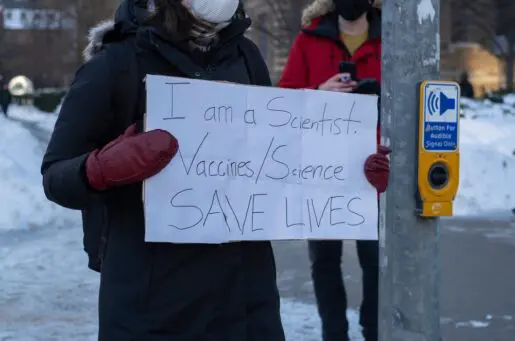Bioethics Forum Essay
Is It Ethical to Reduce Prison Sentences in Exchange for Organ Donation?
A bill filed in the Massachusetts House of Representatives on January 20 would allow prisoners who choose to donate organs or bone marrow for transplantation to be eligible for reduced sentences. The bill stipulates that the sentence reduction would be at least 60 days and no greater than one year. Is such a policy ethical? For the sake of this essay, I will address this question with respect to donation of a single kidney.
The proposed law is intended to serve a clear benefit: to promote organ donations that can save lives or improve the quality of life for patients with end-stage renal disease—donations that otherwise likely would not occur. However, this policy is apt to evoke moral qualms.
Many people might respond with an immediate intuitive judgment that it would be unseemly to induce incarcerated individuals to undergo a surgical operation, with non-zero risk of death or lasting morbidity, for the sake of reducing their prison term. Such an intuition might be a signal that the policy is unethical, but it doesn’t suggest any reason why prisoners should not have the option to make a donation that is deemed acceptable, and laudable, for healthy individuals who are not in prison. To be sure, it is not the option itself, but providing the incentive for the option, that appears problematic in the prison context. Several ethical concerns can be raised about the proposed law.
First, the incentive might be considered a bribe. Bribes, properly speaking, involve inducements for wrongful conduct, but there is nothing wrong with donating a kidney to benefit someone in need. Second, the offer of a sentence reduction might be seen as coercive. This, however, is a common misconception, as coercion involves a threat of harm to induce an undesired act, such as surrendering one’s wallet at gunpoint. While prison is a paradigmatic coercive environment, under this policy prisoners would be free to choose whether to donate a kidney, and there would be no penalty to those who choose not to donate. Third, the offer of a sentence reduction might be regarded as an undue inducement. But the inducement would be undue only if it were to distort the rationality of an incarcerated person’s judgment concerning whether the benefits of a sentence reduction warranted the risks of the organ procurement operation. This problem could be obviated by a scrupulous process of consent for the donation obtained by a neutral party not employed by the prison to assure that it is a voluntary and adequately informed choice. (The bill is deficient in omitting any mention of informed consent.)
A fourth objection is that such a policy exploits incarcerated individuals who are highly motivated to reduce their time in prison. In his influential book, Exploitation, Alan Wertheimer offered a systematic analysis of this concept. He wrote, “At the most general level, A exploits B when A takes unfair advantage of B.” Clearly, the proposed law is meant to take advantage of the situation of individuals in prison by promoting organ donations in exchange for reduced sentences. Is that advantage-taking unfair? Wertheimer makes an important conceptual point: “There is a distinction between taking advantage of unfairness (or misfortune) and taking unfair advantage of unfairness (or misfortune).” The latter counts as exploitation; the former does not.
Incarceration for individuals found guilty of committing crimes is not per se unfair. In the U.S., however, imprisonment is characterized by pervasive unfairness, including racial inequities in sentencing, excessively long sentences, and inhumane conditions. It doesn’t follow that the offer of prison sentence reduction in exchange for organ donation unfairly takes advantage of incarcerated individuals. Rather, it gives them an opportunity to judge whether, on balance, they are better off reducing their time in prison in exchange for an organ donation, in addition to benefiting a person in need of a transplant. On the other hand, one might judge that the sentence reduction offered, from 60 days to one year, is not sufficiently large to be fair to those willing to undergo the risks and discomforts of a kidney donation operation.
Although anticipating that others will disagree, I reach the tentative judgment that the proposed Massachusetts law is not unethical, provided that necessary conditions for obtaining informed consent and assuring the safety of donors are implemented. The latter would include carefully screening candidates to assure that they are healthy enough to withstand kidney donation without undue risk, performing the operations to procure organs in health care institutions with a track record of high-quality for the procedure, and providing adequate follow-up medical care for the donors.
The case for or against the ethics of a policy that offers prison sentence reduction in exchange for organ donation would be enhanced by conducting a survey of previously incarcerated individuals to ask whether or not they judge the policy to be acceptable and for what reasons. These research participants would know about the prison environment without currently being subject to it. While empirical research cannot, itself, resolve ethical issues, it would be informative if a majority of the respondents were opposed to or in favor of such a policy.
Franklin G. Miller, PhD, is a Professor of Medical Ethics in Medicine at Weill Cornell Medical College and a Hastings Center fellow and board member.














I suspect the unintended consequences will outweigh any purported benefit to society with individual rights bearing the brunt of the true societal costs. We have only to look at the PRC to grasp where such a policy will ultimately lead under utilitarian pressure.
While being under punishment for committing a crime is not necessarily unfair, I think it is impossible to separate the injustice of the current incarceration system from the ethical dilemma in this instance. Regardless of whether the judgement of risk versus reward is sound, a person would be enduring a surgery with health risks in order to remove themselves from an unjust system. This policy leverages injustice and further incentivizes the continuation of that injustice. Healthcare systems and anyone who could benefit from organ transplants (which is any of us) would have an inherent interest in maintaining an incarcerated population incentivized to donate their body for freedom. This is different from a policy that would require businesses to grant employees PTO to donate organs, offer tax breaks to individuals who donate organs, or a marketing campaign encouraging donations, none of which prey directly upon individuals in difficult circumstances who already face significant disadvantages under the current justice system.
Examination of vulnerability due to race and its relationship to the demographics of US penal systems are required for this article. Demographic data of the penal system suggests that individuals of African descent are 5 times more likely to be incarcerated compared to those of European ancestry. The disparities associated with mass incarceration are further exemplified by longer sentencing for African Americans compared to adjudicative sentencing for White offenders that commit similar crimes. These implications cannot be separated from the ethical analysis required as individuals that are the most likely to benefit from organ transplants are likely to be individuals that do not have socioeconomic or racial/ethnic vulnerabilities.
Despite the positive assertion that expanded availability to organs will improve the lives of people with end-of-life pathophysiological illnesses (such as renal disease), this is a use of utilitarian and consequentialist ethics. Specifically, the individuals that bear the burden of invasive medical procedures to provide these organs are the individuals that will benefit the least. Furthermore, this leaves an unanswered question regarding unequal benefit for individuals that are deemed ineligible for parole.
Considerations of standardized psychometrics such as the Psychopathy Checklist Revised suggest that African Americans tend to score higher on this assessment. A score of 30 or renders an individual ineligible for parole due to the psychometric properties of the test suggesting that these individuals are at high risk for violent crimes and recidivism. Thus, this article does not address how this law can ensure distributive justice especially for individuals that are facing life sentences.
If the Department of Human Services has established 45 CFR Part 46.301 to provide special protections for prisoners who participate in biomedical research, it would seem that safeguards against undue influence on decision-making and voluntary organ donation as a condition of sentence reduction should also be established.
The bill of the state of Massachusetts’ House of Representatives allowing prisoners the opportunity to donate bone marrow or organs for the eligibility for a reduced sentence, with the premise that they are making this choice free of will, is profoundly unethical, arguably racist, and at a minimum willfully ignorant. Not connecting the realities of being a prisoner to both the impact of the disproportionate processes that have determined their sentencing and the trauma in concert with the reduction of opportunities experienced in their lives prior to prison when implementing a bill or policy is negligent. A bill presented under the guise of its positive impact on those who desperately require the donation of an organ to live as justification to use the reduction of a prison sentence to prisoners who are desperate to get out of an institution where they are removed from the joys of life, and not stop to say this is manipulation of the worst kind is morally abysmal.
The 2020 Harvard Criminal Justice Report found that Massachusetts consistently imposed harsher initial charges and longer sentences on people of color as opposed to whites in their state, leading to an over-representation of people of color at every level. As per Harvard’s School of Public Health, health disparities cost the state 5.9 Billion a year. Nevertheless, the conversation of the vulnerable population whom this bill would most likely negatively impact as a quality of health, survival, and precedent has not been a deterrent. Has the determination of a vulnerable population become synonymous with the population deemed of personage by Society? Taking advantage of lives predicated from historically systemic racist actions of redlining, restrictive convents, and a disproportionate punitive legal system that’s reflected in current health disparities, gaps in generational wealth, education, and the mass incarceration of African Americans speaks to the use of utilitarian ethics in the worst fashion.
Jay-Z, the Brooklyn-based, Grammy-winning, Hall of Fame inductee, whose lyrics now cover the side of the Grand Army Library, is famous for his depiction of the struggles of inner-city African-American youths to survive. He stated on his first album, “We hustle out of a sense of hopelessness, sort of a desperation, we become addicted sort of like the fiends we accustomed to servin’, but, we feel we have nothing to lose. So, we offer you, well, we offer you our lives, right?”. For the part of American Society with no lived experience of this world, his lyrics became memorized language that provided a picture of the division of access in a system we all live in. Like a picture, without context, it loses meaning; without background, the sensory connection is absent. For those who have lived in the experience, the question of capacity in the context of what you would risk for the chance of a better life is ever-present. Leaving one to ironically sing “Can I Live?”.
The manipulation used to gain consent from a population whose capacity to make this decision is historically and situationally skewed due to the coercion of multifactorial access limitations makes this process unethical. The Society of Medicine should aim to dig deeper to ensure our actions’ lasting effects will amplify the healing we seek to provide and not exacerbate symptoms of chosen ignorance.
Reducing prison sentences in exchange for organ donation has the potential to be unethical due to the fundamental principle of informed consent. For individuals not incarcerated organ donation is likely self motivated. Pressuring an individual to agree to such procedure is frowned upon and considered morally and medically unethical. In the context of reducing prison sentence, it is not clear enough whether the consent to undergo transplant surgery in exchange for an incentive would be truly voluntary or if full knowledge of the possible risks and benefits were appropriately considered. In turn, if this bill is passed the integrity of the organ donation system could be compromised leading to further ethical concerns about the veracity of organ allocation and the true motivation of those who opted to donate.
This is a great post! While reading this, I couldn’t help but think of the supply and demand conflict that exists around organ transplantation. I agree that this method does increase the supply of organs beyond the current organ procurement methods; however, I also agree that autonomy and coercion come into play. The proposed bill raises significant questions about the altruism involved with organ donation. Since the incentive of a reduced sentence is being offered in exchange for organs, this once voluntary act has become a transaction. It feels ethically unsettling to trade organs for something in return, but if there was a sure way for an incarcerated individual’s consent to be assessed as informed and their choice was freely made, this could be helpful.
However, the Wertheimer quote really stuck with me. Especially your point about not offering a similar, morally grey incentive to individuals who are healthy and not incarcerated. The United States has a long-standing history of exploiting individuals before, during and after incarceration. Creating a incentive as permanent as organ donation is unsettling when I think of how actions that prove rehabilitation and positive community contribution won’t be receiving the same incentivized outcome.
Lastly, as a future FNP, I wonder about the life an individual has after incarceration–particularly their health. Once they return to their community, these individuals rarely get connected with adequate health care. For someone that went through a major procedure such as organ donation where there can be complications or long term consequences to their health, it feels morally wrong to not supply follow-up care. If there are complications that require treatment, who will pay? A formerly incarcerated individual who hasn’t worked in years? Once again, it is unsettling to think that these prison systems would use people in such an objectified way.
In the United States in terms of research, prisoners are considered a vulnerable population due to their incarceration and the constraints it can put on them to make true voluntary decisions. This is added on to the increased risk of exploitation which will always be a factor to consider in a prison system, particularly in the United States where there lies injustice and racial disparities in proper sentencing. In the same respect, with enough rigorous screening prior to intervention and adherence to strict protocol it is seen as ethically sound to perform research. For the case of organ donation, if clear risks and benefits are discussed and a strict protocol with a third party is adhered to, I do not see the argument of not offering the option of organ donation to prisoners with the added benefit of sentence reduction.
The confusing outlying factor lies with the quantity of sentence reduction. The range of minimum 60 days and maximum 1 year seems outlandish and I am concerned for the ethicality as to who is going to make the final call on how much an organ is worth and based on what standards. Does an individual’s ‘crime’, quality of organ, age, race, blood type all become factors to judge their worth? This may create a precedent where voluntary donation is no longer valued and we may need to find an equivalent of reduced prison sentencing for those who are not incarcerated. The sliding scale of prison sentencing will equate to a sliding scale of, for example, dollars, and those who are young, healthy, with rare blood types will receive higher financial compensation. This creates difficulty and bias in assessment and ethical judgement.
There is also consideration for post procedure and quality of life. Will the follow up be a mandatory given to those who donated their organs? Or will they be left to fend for themselves after the immediate post transplant period. There are more logistics and factors to consider fleshing out before such a bill is introduced and made public. And when there is consideration to introduce, it should be for a trial period to assess medical outcomes, quality of life, and incarcerated individual’s opinions post transplant for feelings of regret, sorrow, or indifference.
I understand the intention behind the Massachusetts bill proposing sentence reductions in exchange for organ donations, and there is certainly merit to the idea of saving lives through increased organ donations. However, there are several compelling ethical issues that make proposals like these deeply problematic. The potential harms far outweigh any benefits, especially when considering the vulnerability of incarcerated individuals.
While Miller argues that offering a sentence reduction for organ donation is not coercive because the prisoner can choose whether to participate, this view oversimplifies the power dynamics in prisons. Incarcerated individuals are in a coercive environment by definition. Their choices are heavily constrained by the reality of prison life, which often includes limited autonomy and harsh conditions. The promise of reducing one’s prison sentence—even by a small amount—represents a powerful incentive, particularly for those who are serving long or difficult sentences. The psychological pressure to accept such an offer can easily distort the decision-making process. The offer could be viewed as exploitive. Prisoners are already vulnerable in numerous ways, and using the promise of a sentence reduction to encourage organ donation takes advantage of that vulnerability. It’s easy to argue that such a policy exploits prisoners’ desperation to shorten their sentences, and this incentive might cloud their judgment, leading them to make a decision that is not fully voluntary or well-considered. While informed consent is essential, as Miller suggests, the power imbalance in the prison system undermines the fairness of the decision-making process.
As it pertains to the risk of medical harm, even if the necessary medical safeguards were in place, there are still significant concerns about the health risks to prisoners. Kidney donation, although generally safe, involves risks of complications, long-term health impacts, and even death. For an incarcerated individual, who may already have limited access to adequate healthcare or pre-existing medical conditions due to the environment of the prison system, these risks are amplified. It’s important to consider whether prisoners, particularly those in vulnerable health situations, should be asked to assume such risks for a relatively small reward (a reduced sentence of up to one year).
Finally, this policy risks normalizing a disturbing precedent: the commodification of human bodies, particularly those who are marginalized and disenfranchised. Prisoners are already subject to significant power imbalances in their everyday lives. By offering organ donation as a way to “earn” a reduced sentence, society could be signaling that the lives and bodies of incarcerated individuals are less valuable, that their autonomy is negotiable, and that they are willing to sacrifice their well-being for the benefit of others in exchange for a minor concession. This creates a slippery slope where we may start to view bodily autonomy as something that can be bargained with, and ultimately erode the ethical principle that individuals should never be coerced or incentivized to harm themselves for external gain.
Last, it’s important to consider that racial and socioeconomic inequalities are pervasive within the U.S. prison system. A bill like this could disproportionately impact marginalized groups, further perpetuating systemic injustice. For many individuals, the prospect of gaining a reduced sentence could feel like a “way out” of the harsh realities of incarceration, but it’s essential to ask whether this is a morally acceptable “choice” when one’s life is constrained by such severe systemic barriers.
Therefore, while organ donation is an undeniably important cause, and saving lives is a noble goal, offering prison sentence reductions as an incentive for organ donation is an ethically flawed approach. It risks exploiting incarcerated individuals, distorting their decision-making, and imposing unnecessary medical risks. Rather than taking advantage of vulnerable individuals in prison, society should explore alternative ways to encourage organ donation—ways that respect the autonomy and dignity of all individuals, regardless of their incarceration status. The focus should be on creating a system that ensures true voluntariness and fairness, both in the donation process and in the treatment of those who are incarcerated.
This is quite the interesting post. Offering a reduced sentence in exchange for organ donation raises serious ethical concerns. Incarcerated individuals are in a structurally vulnerable position, and introducing this kind of incentive compromises the voluntariness of their consent. Even if participation is technically optional, the power dynamics of incarceration can create implicit pressure. It feels almost impossible to argue that consent in this case could truly be voluntary. It is important that a decision to donate an organ is done freely and without influence of the potential freedom. There is no doubt that the shortage of organs is a significant issue, but relying on this vulnerable population is not ethically sound. Perhaps instead we should focus on reforms that promote equity in both healthcare and the justice system.
Prior to reading this post, I was unaware of this legislation and immediately became interested in exploring it further. I discovered that the sponsors of the bill believed its benefits would be twofold: reducing the number of people on organ donation waiting lists—particularly minorities who often face greater challenges in finding donors—and decreasing the incarcerated population. While reading this post, I found myself agreeing with your conclusion that the bill is not inherently unethical, provided that informed consent and safety requirements are rigorously upheld.
Although the bill’s objectives are commendable and should be pursued, upon further reflection, I believe it is not the appropriate means to achieve these ends. Other commenters have already highlighted how this legislation could perpetuate historic racial injustices within the penal system, given that people of color are disproportionately represented in prison populations and tend to receive longer sentences than their white counterparts. I would like to discuss an additional concern: the potential for this bill to exacerbate inequalities.
Unlike other sentence-reduction mechanisms, such as those based on good behavior, not all incarcerated individuals would have equal opportunities to participate in organ or bone marrow donation. Factors such as age, health status, medical conditions, or past behaviors could disqualify some individuals from eligibility. This disparity could lead to unequal opportunities for sentence reduction among prisoners. To address this issue and mitigate inequality, greater emphasis should be placed on alternative programs that facilitate sentence shortening while ensuring fairness and inclusivity.
Thank you for initiating this discussion and sharing your insights on a proposal with the potential to save many lives yet fraught with ethical challenges. While the intention behind the bill is well-meaning, the policy still risks exploiting a population that is already disadvantaged and subject to systemic injustices. Although arguments that the offer of a reduced sentence in exchange for organ donation would not be considered a bribe or coercion may hold true, there still remains a high risk of undue influence. Incarcerated individuals often have few opportunities to reduce their prison sentences. For many, the prospect of returning to their families or communities who depend on them as quickly as possible is a significant motivator. In these circumstances, a prisoner might not fully consider the risks involved in organ donation, such as the potential for complications, long-term health consequences, or even death. Thus, while participation may be technically voluntary, the inherent power imbalance and the restrictive conditions of the prison environment make it almost impossible for those incarcerated to make truly informed, unpressured decisions.
Furthermore, determining how much time should be shaved off a prisoner’s sentence for an organ donation—ranging from 60 days to a year—forces us to confront a chilling question: can we really put a price on human life? The notion of reducing someone’s punishment in exchange for an organ has the potential not only to transform a life-saving gift into a mere transaction but also reduce a person’s worth to little more than a number on a prison ledger. It risks perpetuating inequities, leading to another important consideration: the impact on prisoners ineligible to donate organs. Prisoners with medical conditions or other disqualifying factors would not be able to participate in such a program, putting them at a disadvantage. Would there be alternative programs or incentives available to those who cannot donate, ensuring that they too have opportunities for sentence reduction or other forms of rehabilitation? The policy, as it stands, appears to create a distinction between prisoners who can donate and those who cannot, potentially fostering feelings of inequality within the prison population itself.
Applying one overarching policy to all prisoners is further complicated by the wide range of individual circumstances within the incarcerated population. Not all prisoners have the same rational capacity, state of mind, or motivations for their actions. Support systems, personal experiences, and the nature of the crime committed also vary widely, making it difficult to apply a blanket policy to all prisoners. Some prisoners may be more vulnerable to exploitation, and others may struggle with psychological challenges that affect their judgment. Nevertheless, if this policy were to be implemented, and a donor suffers severe complications affecting the remainder of their life, who would be responsible for providing them with life-long medical and financial support? If a prisoner’s health is fully compromised as a result of the donation or it was determined they would not live much longer due to complications, would they still be required to serve the remainder of their sentence? While surveying previously incarcerated individuals could provide valuable insights into the acceptability of this proposed law, such concerns are likely to remain insufficiently unaddressed. As such, it is worth further exploring alternative, less ethically fraught methods to address the organ shortage, like opt-out donation systems or more thorough organ donation awareness initiatives, prior to moving forward with such a policy.
I appreciate your thoughtful breakdown of the ethical concerns surrounding the bill filed by the Massachusetts House of Representatives. I agree that it’s important to distinguish between coercion, undue inducement, and exploitation. I can understand the arguments both for and against reduced prison sentencing in exchange for organ donation.
That said, I’m questioning how voluntary consent would actually work in the prison system. The pressure to shorten a sentence could affect someone’s ability to make a fully informed, voluntary decision. With a prison system so heavily rooted in systemic inequalities and injustices, can we confidently trust the same system to ethically manage this kind of program?
I believe strong, objective policies would need to be in place to ensure the program remains ethical. There needs to be a thorough informed consent process, and donors should be fully educated on what to expect before, during, and after the procedure. I also wonder what kind of follow-up medical care would be provided. If someone donates and then leaves the prison system, will they continue to have access to the care they need?
I’m also questioning whether a 60-day to one-year sentence reduction is adequate compensation for donating an organ. There are real risks involved, some having lifelong impacts. I can see how this policy could be ethical, but only if it’s backed by strong regulations and protections. This bill raises important concerns about autonomy and systemic inequality that need to be further investigated and discussed.